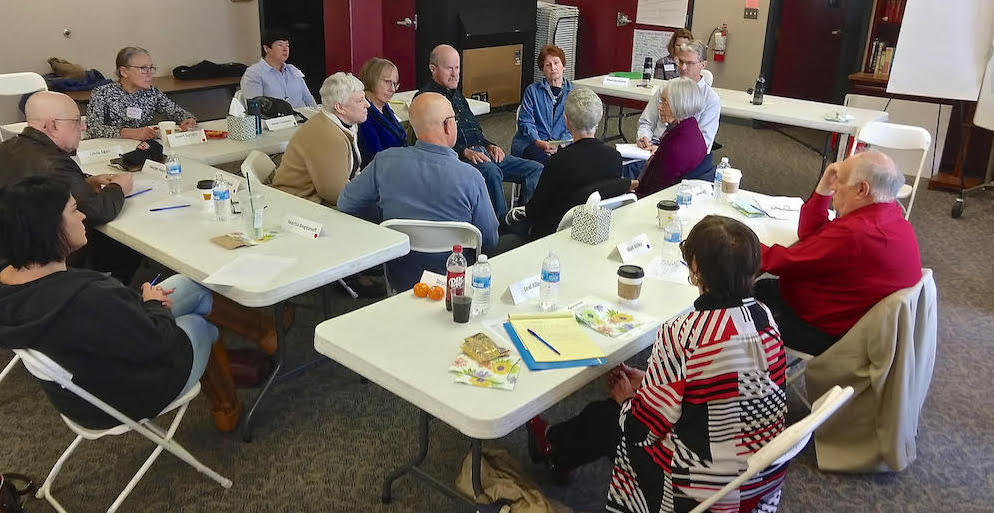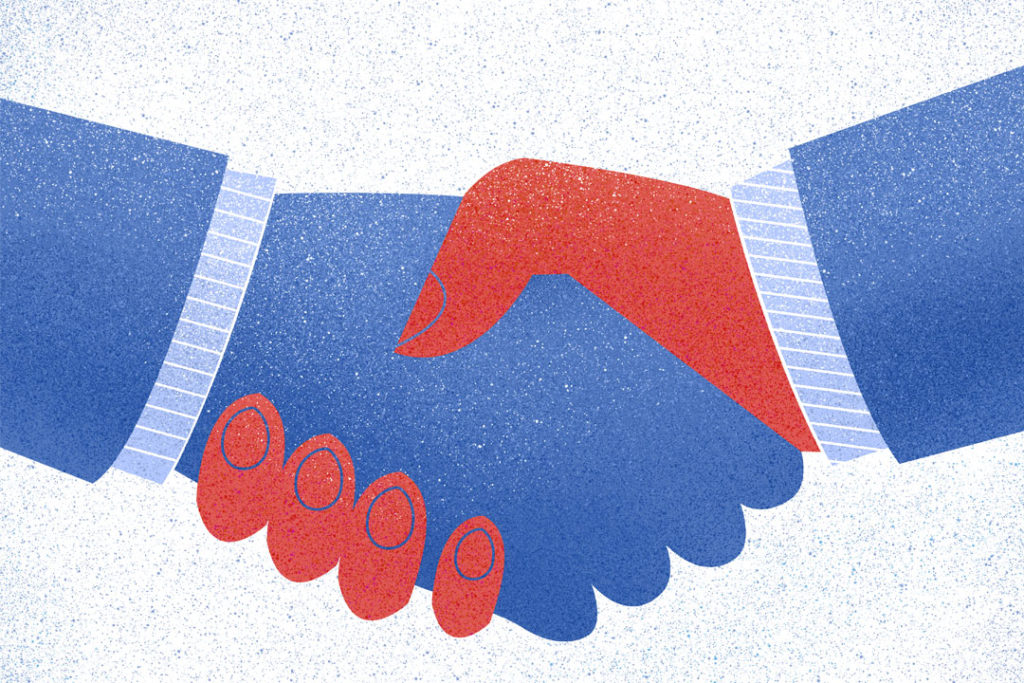
Better Angels
‘The country is disuniting. The last election only made clear what many have feared – that we’re becoming two nations, each angry with the other, and neither trusting the other’s basic humanity and good intentions.’
Which country is being spoken about here? You may think it’s Brexit Britain. You may think it’s France, or Germany, where the National Front and AfD threatened the political establishment for the first time. Or it could be Italy, whose recent election has resulted in uncertainty and a fractious coalition between The League and Five Star Movement.
This quote is about America, but it applies across the West. Longstanding economic fault lines and deeply-held cultural differences are being exposed in waves of anti-establishment expression. Widespread discontent and resentment has developed into serious social fractures. Bitter political campaigns are being fought.
People are being drawn to take up extreme political positions and division is the order of the day. Whether it is Brexit or Remain, progressively liberal vs socially conservative, Conservative or Labour, pro- or anti-Corbyn, polarised positions on Scottish independence, or gender and race issues – everything is political now. We have seen this explored in The Road to Somewhere by David Goodhart and described as The Age of Outrage by Jonathan Haidt.
We live in an age of intense individualism: economically, culturally and socially we have become atomised, separated from community, ignorant of others and siloed within our own echo chambers. We are exposed only to news that makes us angry with the other side: algorithms control the posts and links we see and feed a worldview that we already agree with. In spite of its benefits, the paradox of social media is that it has made us less social and made society less human.
The crisis we face is polarisation. What endangers us is not the rise or decline of either party, but our loss of trust in each other and the take-over of our politics by those in both parties who would have us put faction over country, treat our opponents as enemies, and reject the idea of common ground.
Against this backdrop Better Angels is seeking to challenge political and cultural divides by building bridges between estranged groups. They start with a very simple objective: helping people who have strong political disagreements with friends and family to have better conversations. Everyone has that uncle who you dread talking to at Christmas dinner. But this goes deeper: Better Angels wants to foster grassroots movements to build trust and mutual understanding in local communities to help people work together on vital issues.
Starting with ‘Red/Blue Workshops’ that bring together seven conservative-leaning participants with seven progressive-leaning participants, Better Angels challenges stereotypes and prejudices, breaking down mistrust and building common ground between people who otherwise see none.
The television network MSNBC saw the way participants challenged their own views and then came together to look at what they had in common. One member of the group said what they had learnt from the day was a need to ‘not rely on stereotypes to form opinions’. Another said ‘be civil; don’t argue and put yourself in their shoes’.
Counter-cultural programmes such as this can offer a radical new way of engaging with others: instead of anger, there is conversation. Instead of hostility there is co-operation. Instead of division, there is the pursuit of shared goals. By bringing people together, Better Angels creates that vital human connection that can enable discussion and a better understanding of where the other person is coming from. Instead of shouting into the black hole that is social media, they begin to work against the dehumanising forces that divide, and truly recognise the benefits of collaboration.

Breaking down the barriers between individuals is the first step towards a healthier, more cooperative society and democracy.
An important feature of Better Angels’ approach is the absence of a hidden agenda to persuade participants to a particular position. Their key principle is not to persuade others that they are wrong, but simply to listen and hear their perspective. By doing this, participants confront themselves and learn to understand the views of others. Instead of demonising the opposition, listening facilitates a dialogue and a recognition that those who hold a different view have as much of a right to their opinion as you do.
Taking diversity of opinion seriously upholds human dignity. We are not meant to be the same or to think the same. In The Righteous Mind Haidt explains how ‘left’ and ‘right’ leanings come from instincts which are meant to be complementary, each contributing insights from which the other can learn. Indeed, if the Common Good is ‘the shared life of a society in which everyone can flourish’ then it relies on us finding ways to work together across our differences.
So it is vital that every single individual has the dignity of being listened to, valued and included. Seeking to impose one’s own worldview on others leads to division, and holding sections of society in contempt inevitably leads to trouble. In contrast, an approach that listens and holds others in mutual respect is more likely to generate a spirit of practical cooperation.
It’s not rocket science: ‘I think it’s hard to get things done as a country if we’re just trying to better ourselves over the other group and win’, said one member of the Better Angels workshop. Instead of looking to gain advantage only for ourselves, or our particular group within society, it is more productive to work to build a common life that benefits everyone. And that must start with conversation.
‘The Common Good is the shared life of a society in which everyone can flourish – as we act together in different ways that all contribute towards that goal, enabled by social conditions that mean every single person can participate. We create these conditions and pursue that goal by working together across our differences, each of us taking responsibility according to our calling and ability.’
© Tom Ketteringham
Images courtesy of Better Angels
